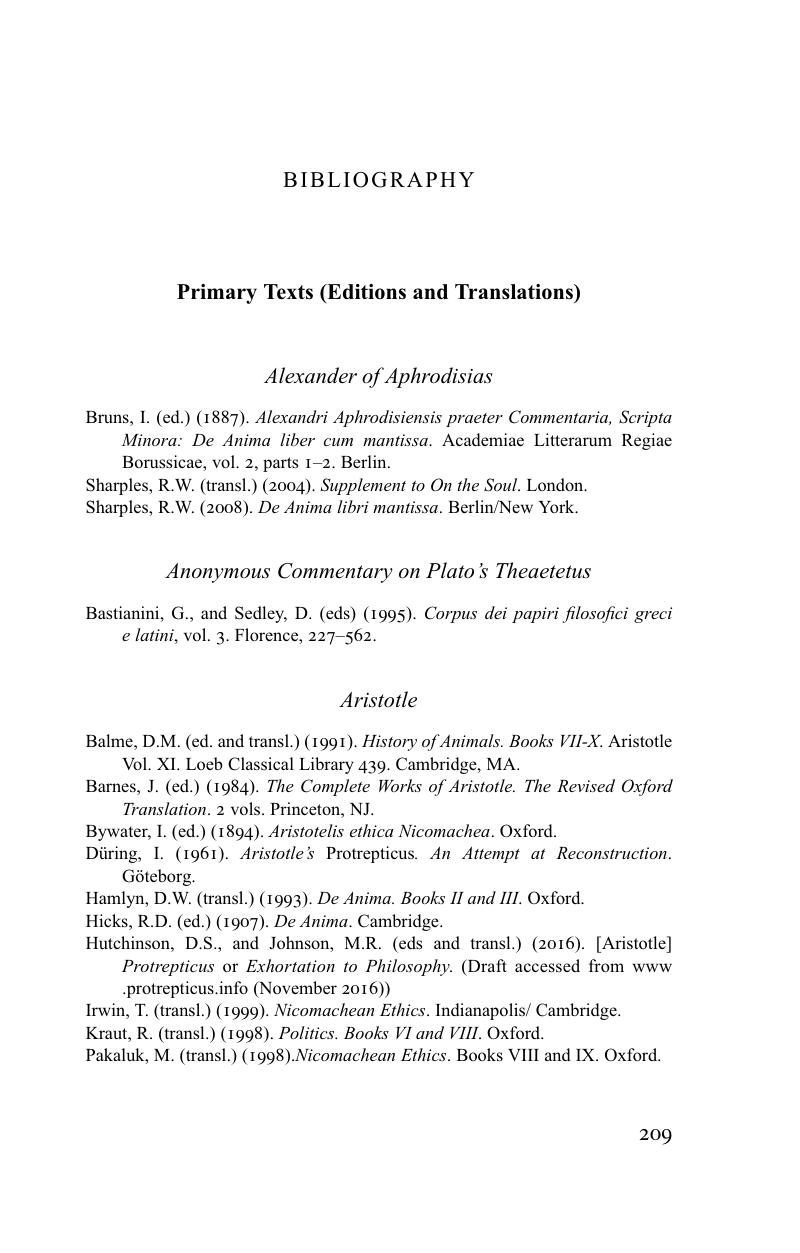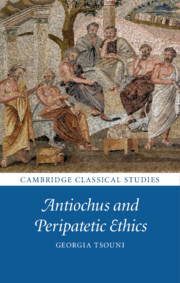Book contents
- Antiochus and Peripatetic Ethics
- Cambridge Classical Studies
- Antiochus and Peripatetic Ethics
- Copyright page
- Contents
- Acknowledgements
- Abbreviations
- Introduction
- Part I Antiochus in Rome and Old Academic History of Philosophy
- Part II The Ethics of the Old Academy
- Bibliography
- Index Locorum
- GENERAL Index
- References
Bibliography
Published online by Cambridge University Press: 15 February 2019
- Antiochus and Peripatetic Ethics
- Cambridge Classical Studies
- Antiochus and Peripatetic Ethics
- Copyright page
- Contents
- Acknowledgements
- Abbreviations
- Introduction
- Part I Antiochus in Rome and Old Academic History of Philosophy
- Part II The Ethics of the Old Academy
- Bibliography
- Index Locorum
- GENERAL Index
- References
Summary

- Type
- Chapter
- Information
- Antiochus and Peripatetic Ethics , pp. 209 - 221Publisher: Cambridge University PressPrint publication year: 2019

